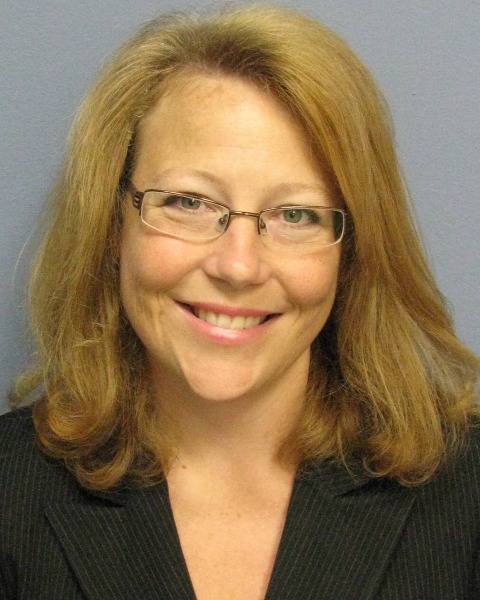
Harmful Substance Use in Women: New Horizons in Treatment
-
Register
- Non-Member - $39
- Regular Member - $29
- Retired - $29
- Early Career Physician - $29
- Resident - $19
- Student - $19
- Associate - $19
- ASAM Staff - Free!
- International Member - $29
- Emeritus Member - $29
- Provisional Member - $29
- Fellow Member - $29
- Honorary Member - $29
- CRT Member - $29

Harmful Substance Use in Women: New Horizons in Treatment
Developed in Collaboration with the National Institute on Alcohol Abuse and Alcoholism
Recorded: Thursday, April 13, 2023 to Sunday, April 16, 2023
On-Demand Session
Overview
This 75-minute on-demand session from the ASAM 54th Annual Conference addresses promising behavioral and pharmacologic interventions that are women-specific and/or relevant to the unique needs of women who use alcohol and other substances at harmful levels. Besides reviewing the current literature on the treatment of harmful substance use in the general population of U.S. women, the session will highlight the clinical implications of current research on substance use in pregnant women.
This session will provide an overview of the current literature on promising behavioral and pharmacologic interventions that are women-specific and/or relevant to the unique needs of women who use alcohol and other substances at harmful levels. Besides reviewing the current literature on the treatment of harmful substance use in the general population of U.S. women, the session will highlight the clinical implications of current research on substance use in pregnant women.
The target audience for this intermediate level session includes physicians, nurse practitioners, physician assistants, other clinicians, researchers, residents, fellows, students, and counselors.
This session addresses the following ACGME Competencies: Medical Knowledge
This session addresses the following IOM Competencies:Provide patient-centered care, Employ evidence-based practice
Learning Objectives
Upon completion, learners will be able to:
- Describe at least one evidence-based approach to screening for and treating harmful substance in women in primary care settings.
- Articulate the rationale for targeting stress pathophysiology as an effective treatment strategy for women who use alcohol and other substances at harmful levels.
- Describe one or more promising strategies for treating substance use in pregnant people.
Registration Rates
| Rate Description | Rate |
| ASAM Member | $29 |
| Non-Member | $39 |
| Associate Member | $19 |
| Resident Member* | $19 |
| Student Member* | $19 |
*Residents, Fellows-in-training, Interns, and Students must join ASAM to receive a discounted registration rate. Click here to become an ASAM member. National and Chapter membership dues apply. There is no charge for Students to become a Member, but verification of student status is required.
Membership Question? Call ASAM at 1.301.656.3920, email us, or view the ASAM website for more information.
Refunds & Cancellations
All ASAM e-Learning Center refund requests must be made in writing to education@asam.org within 90 days of purchase. Those requesting refunds for courses that are in progress will receive partial refunds or e-Learning Center credit. Automatic full refunds will be made for any course with a live-course component that has been cancelled.
Registration Deadline: 05/15/2026
Session Instructions
- Click on the Contents tab to watch the on-demand recording.
- Click Complete Post Test to answer multiple choice questions. Participants will have 10 attempts to pass and must answer 4 out of 5 questions correctly.
- Click Complete Evaluation to provide valuable activity feedback. Scroll down on all questions as there may be answer options that expand past the size of the window.
- Click the button Claim Medical Credits in the box titled Claim Credits & Certificate. Choose the type of credit and click submit. Click the button View/Print Certificate to save or print your certificate. You can view/print your certificate at any time by visiting the ASAM eLearning Center, clicking Dashboard, and clicking Transcript/Achievements.
Need Assistance?
For assistance logging in, accessing activities, claiming credit, or for other questions or concerns, please check the FAQ page or e-mail Education@ASAM.org
ASAM is proud to offer Essential Accessibility to ensure our website is accessible and functional for all our learners while providing free assistive technology for people with the widest possible range of abilities.

Deidra Y. Roach
MD
Deidra Roach, MD has 30 years of experience in the field of addiction treatment. She currently serves as a medical project officer for the National Institute on Alcohol Abuse and Alcoholism where, among other responsibilities, she manages research portfolios addressing the treatment of co-occurring mental health and alcohol use disorders and alcohol-related HIV/AIDS among women. She also serves on the Interagency Coordinating Committee on Fetal Alcohol Spectrum Disorders (ICCFASD) and the NIH Coordinating Committee for Research on Women’s Health. Dr. Roach serves as Co-chair of the Interagency Work Group on Drinking and Drug Use in Women and Girls.

Hendree E. Jones
PhD, LP
Professor, Department of Obstetrics and Gynecology, School of Medicine; The University of North Carolina at Chapel Hill (UNC-CH), Chapel Hill, North Carolina; Senior Advisor to UNC
Horizons, joint appointments – Professor, Department of Psychology UNC-CH and Professor, Department of Psychiatry and Behavioral Sciences at Johns Hopkins University. Executive/Division Director of UNC
Horizons 2013-2023; Chair, Women & Substance Use Disorders Special Interest Group, American Society of Addiction Medicine and Chair, Global Women’s Treatment and Recovery Network
Dr. Jones is a licensed psychologist and an internationally recognized expert in the development and examination of both behavioral and pharmacologic treatments for pregnant women and their children in risky life situations. She was the Division Director of UNC Horizons for a decade and in May of 2023 stepped into a Senior Advisor role for Horizons in order to take on several new national policy and international policy projects. Expertscape ranks Dr. Jones as a top world expert in neonatal abstinence syndrome and opioid-related disorders. She has received continuous National Institutes of Health funding since 1994 and has written more than 250 peer-reviewed publications. Dr. Jones has also authored two books, one on treating patients for substance use disorders and the other on comprehensive care for women who are pregnant and have substance use disorders. She also has written multiple textbook chapters on the topic of pregnancy and addiction as well as 17 courses for adult learners on topics of substance use disorder treatment (WISE, CHILD, PEERS, ALLIES etc). Dr. Jones has co-authored multiple national and international guidelines on the topic of caring for pregnant and post-pregnant people with substance use disorders and their children including those published by the WHO, SAMHSA and ASAM. She also co-authored both the women’s and children’s section of the UN International Standards for the Treatment of Drug Use Disorders and the UN guidelines on prevention and treatment for girls and women. In 2020 Dr. Jones won the ASAM R. Brinkley Smithers and Distinguished Scientist Award. In 2024 she won the MED Brady-Schuster Division 28 American Psychological Association award for lifetime achievement for contribution to addiction science. She consults for the UN and the WHO and is a member of the NIH’s HEAL multidisciplinary working group and the Advisory Committee on Research on Women's Health. Dr. Jones has been involved in over 43 projects around the world focused on improving the lives of children, women, and families.
No relevant financial disclosures.

Barbara McCrady, PhD
Professor Emerita of Psychology
University of New Mexico
Barbara S. McCrady, Ph.D. is a Distinguished Professor of Psychology Emerita and former Director of the Center on Alcohol, Substance use, and Addictions (CASAA; 2007-2018), at the University of New Mexico. She received her Bachelor of Science in biology from Purdue University in 1969, and her Ph.D. in clinical psychology from the University of Rhode Island in 1975.
Dr. McCrady is internationally known for her work in empirically supported treatments for substance use disorders, with a particular focus on conjoint therapy, cognitive behavioral therapy, mutual help groups, and therapies for women. She created and tested one of the first cognitive-behavioral substance abuse treatment programs. She also has developed and tested an original, conjoint treatment model for persons with substance use disorders and their spouses. Dr. McCrady also has been active in bringing scientific attention to Alcoholics Anonymous, has conducted controlled research on treatments to integrate 12-step and couples therapy models, as well as research on the mechanisms of change in 12-step oriented treatment. She also has conducted controlled research evaluating alternative treatment models for women with alcohol and other substance use disorders, with a special focus on women in poverty, mechanisms of change in family-involved treatment, the development of brief family-involved addiction treatment, and studies of substance dependent criminal justice system (CJS) populations. Her research has been funded by the National Institutes of Health (NIH) since 1979. Her current research focuses on and neurocognitive and behavioral mechanisms of change in recovery from alcohol use disorder. Dr. McCrady has published more than 250 refereed papers, books, book chapters, and commentaries, and has lectured widely on her work.
Dr. McCrady has served as president of Division 50 of American Psychological Association, president of the Research Society on Alcoholism (RSA), and Secretary-Treasurer of the Association for Behavioral and Cognitive Therapies (ABCT).

Sherry McKee, PhD
Professor, Psychiatry
Yale School of Medicine
Dr. Sherry McKee is a Professor of Psychiatry at Yale School of Medicine, where she is the Founder and Director of the Yale Behavioral Pharmacology Laboratory, and the Clinical Director of the Forensic Drug Diversion Clinic. Dr. McKee ’s research over the past 20 years has been directed at developing effective treatments for addiction, with a particular focus on women and more recently, criminal justice populations. Her translational work spans human laboratory paradigms, clinical trials, survey research, and epidemiological research to uncover the mechanisms underlying poor outcomes and to translate these findings into improved interventions for women and men. As the PI of the Yale-Specialized Center of Research Excellence on Sex Differences in Alcohol Use Disorder (U54AA027989), she directs an interdisciplinary team conducting cross-species research focused on expediting the development of gender-sensitive therapeutics, mentoring junior faculty, and providing a national resource on women and alcohol. Dr. McKee’s research achievements have been recognized by the Natural Sciences and Engineering Research Council of Canada, Research Society for Alcoholism, National Institute on Drug Abuse, Society for Research on Nicotine and Tobacco, the National Alliance for Research on Schizophrenia and Depression, and the American Psychological Association.
CME, CE, CEU and Other Credit Types

ACCME Accreditation Statement
The American Society of Addiction Medicine is accredited by the Accreditation Council for Continuing Medical Education (ACCME) to provide continuing medical education for physicians.
AMA Credit Designation Statement
The American Society of Addiction Medicine designates this enduring material for a maximum of 1.25 AMA PRA Category 1 Credits™. Physicians should claim only the credit commensurate with the extent of their participation in the activity.
NAADAC, the Association for Addiction Professionals
This activity has been approved by the American Society of Addiction Medicine, as a NAADAC Approved Education Provider, for educational credits. NAADAC Provider #295, ASAM is responsible for all aspects of the programming.
California Association for Drug/Alcohol Educators (CAADE)
This educational program is approved by CAADE: #CP40 999 1225.
California Association of DUI Treatment Centers (CADTP)
This educational program is approved by CADTP: #205.
California Consortium of Addiction Programs and Professionals (CCAPP)
This educational program is approved by CCAPP: #OS-20-330-1224.
Continuing Education Credits (CEUs)
Non-physician participants will receive a certificate of attendance upon completion of the activity and an online evaluation confirming their participation. Participants should submit his/her certificate of attendance to their professional organization/institute.
Maintenance of Certification / Continuing Certification Program
American Board of Preventive Medicine (ABPM)
The American Board of Preventive Medicine (ABPM) has approved this activity for 1.25 credits towards ABPM MOC Part II requirements.
American Board of Anesthesiology (ABA)
This activity contributes to the CME component of the American Board of Anesthesiology’s redesigned Maintenance of Certification in Anesthesiology TM (MOCA®) program, known as MOCA 2.0®.
American Board of Pediatrics (ABP)
Successful completion of this CME activity, which includes participation in the activity, with individual assessments of the participant and feedback to the participant, enables the participant to earn 1.25 MOC points in the American Board of Pediatrics’ (ABP) Maintenance of Certification (MOC) program. It is the CME activity provider’s responsibility to submit participant completion information to ACCME for the purpose of granting ABP MOC credit.
American Board of Internal Medicine (ABIM)
Successful completion of this CME activity, which includes participation in the evaluation component, enables the participant to earn 1.25 Medical Knowledge MOC points in the American Board of Internal Medicine’s (ABIM) Maintenance of Certification (MOC) program. Participants will earn MOC points equivalent to the amount of CME credits claimed for the activity. It is the CME activity provider’s responsibility to submit participant completion information to ACCME for the purpose of granting ABIM MOC credits.
American Board of Surgery (ABS)
Successful completion of this CME activity, which includes participation in the evaluation component, enables the learner to earn credit toward the CME and/or Self-Assessment requirements of the American Board of Surgery’s Continuous Certification program. It is the CME activity provider's responsibility to submit learner completion information to ACCME for the purpose of granting ABS credit.
American Board of Psychiatry and Neurology (ABPN)
Successful completion of this CME activity can be used to satisfy the American Board of Psychiatry and Neurology’s (ABPN) CME requirement for Maintenance of Certification program.
American Board of Addiction Medicine (ABAM)
Successful completion of this activity can be used to satisfy the American Board of Addiction Medicine (ABAM) for Tmoc as credits towards ABAM LLSA Part II requirements.
Royal College of Physicians and Surgeons of Canada (RCPSC)
Royal College Fellows can use participation in Accredited Continuing Medical Education to earn Section 3 Credits.
Disclosure Information
In accordance with disclosure policies of ASAM and the ACCME, the effort is made to ensure balance, independence, objectivity, and scientific rigor in all CME/CE activities. These policies include mitigating all possible relevant financial relationships with ineligible companies for the Planning Committees and Presenters. All activity Planning Committee members and Presenters have disclosed relevant financial relationship information. The ASAM CE Committee has reviewed these disclosures and determined that the relationships are not inappropriate in the context of their respective presentations and are not inconsistent with the educational goals and integrity of the activity.

